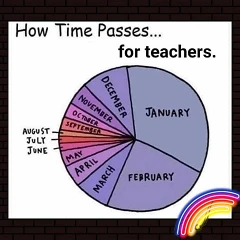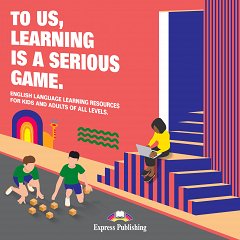Let’s not focus only on delivering our lesson but, instead, offer students the emotional support they need during this stressful period. Motivation, in particular, is a key factor in students’ success at every stage of their education, and teachers play a pivotal role in offering them.
Here are 5 ways we can motivate learners as they prepare for their exams:
1. Have high but attainable expectations for your students.
Research has shown that a teacher’s expectations have a powerful effect on a student’s performance. If you expect your students to be motivated, hardworking, and diligent they are more likely to be so. Set realistic expectations for students when you make assignments, give presentations, conduct discussions, and grade examinations, making sure that you provide positive feedback. To develop the drive to achieve, students need to believe that achievement is possible – which means that you should guide them to have high, but attainable goals.
2. Help students set achievable goals for themselves.
Failure to attain unrealistic goals can disappoint and frustrate students. Encourage students to focus on their continued improvement, not just on their grades on any one test or assignment. Help students evaluate their progress by encouraging them to critique their work, analyze their strengths, and work on their weaknesses.
3. Be caring and supportive.
Students need to feel that the teacher is caring and supportive, and that s/he respects their values and opinions. Kindness and patience are necessary values that teachers should have when working with children. A caring teacher tries to develop a relationship of trust with the students so that they can rely on him/her. When students realise that they are able to communicate with their teacher, this connection inspires students to try harder.
4. Strengthen students’ self-confidence.
Research has shown that students are more affected by positive feedback and success. Praise can motivate students to keep up with their work while it builds self-confidence and competence. Recognize the sincere efforts of your student. If a student’s performance is weak, let the student know that you believe he or she can improve and succeed over time. Explain where the student needs to improve, but also praise areas where the student is doing well. Always congratulate students for doing something correctly; it will give them confidence in themselves, the subject and the teacher. Give the student his/her dignity and he/she will reward you with his/her effort. Make sure that all students get a chance to play to their strengths and feel included and valued. It can make a world of difference to their motivation.
5. Be specific when giving negative feedback.
Negative feedback is very powerful and can lead to a negative class atmosphere. Whenever you identify a student’s weakness, make it clear that your comments relate to a particular task or performance, not to the student as a person. Try to cushion negative comments with a compliment about aspects of the task in which the student succeeded. Many students may be anxious about their performance and abilities. Be sensitive about how you phrase your comments and avoid offhand remarks that might inadvertently create feelings of inadequacy. Try not to perpetuate any antagonistic feelings that students may have, as this may result in opposite results than motivation.
Find here all the Exam Resources you need to get your students ready for their exams!
.png)









